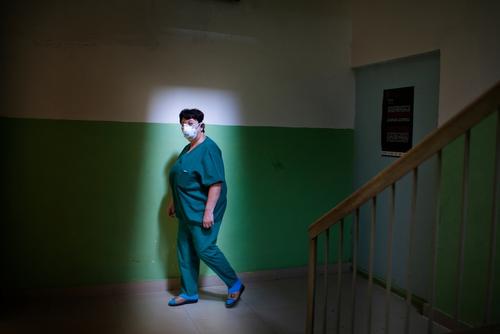
54
54
In 2016, the World Health Organization estimated that 92 people per 100,000 in Georgia were newly infected with TB and 460 patients needed treatment for multidrug-resistant TB (MDR-TB). Among TB cases declared that year, 11 per cent of newly diagnosed patients, and 31 per cent of previously treated ones, had MDR-TB. The high burden of drug-resistant TB is one of the main obstacles to effective TB control in the country.
Since July 2014, MSF has been focusing its activities around the introduction of new treatments for MDR-TB patients, through the endTB partnership. EndTB is a project aimed at developing and making available shorter, less toxic and more effective treatments for MDR-TB. Since April 2015, as part of an observational study, MSF and the Ministry of Health have been treating patients with delamanid and bedaquiline, the first two new TB drugs to be developed in 50 years.
In the first four months of 2017, 44 new patients began MDR-TB treatment regimens containing either bedaquiline or delamanid, combined with other TB drugs. This brought to 100 the total number of patients on treatment in the programme at the end of the year. Georgia also hosts one of the sites for the endTB clinical trial, which aims to compare the safety and efficacy of different MDR-TB regimens containing bedaquiline and/or delamanid. The first patient was enrolled in February 2017.
In Abkhazia, MSF started supporting the introduction of new MDR-TB regimens through training and drug supply in October. MSF also facilitates the transportation of TB samples to the national referral laboratory in Tbilisi for testing.


















